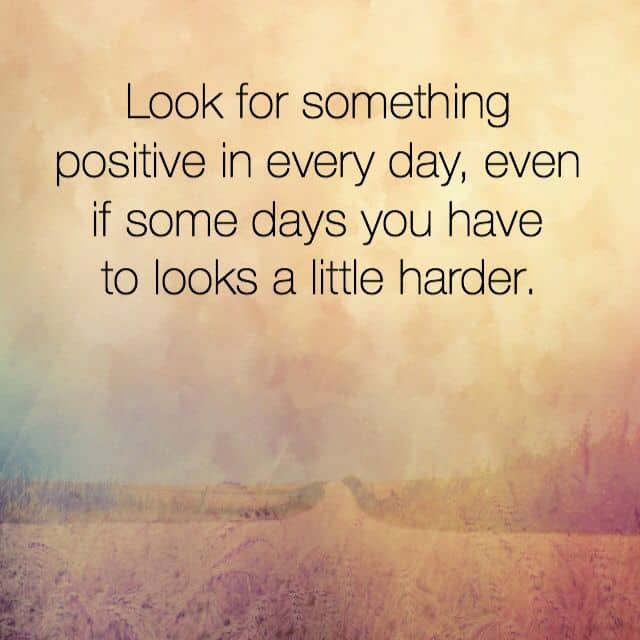The company you keep not only affects your reputation, but it can affect your emotions. Think about a time when you’ve been around friends, family, or co-workers who were an emotional mess. You likely left the situation feeling a little messy yourself. That’s the insidious nature of secondhand stress.
People are contagious, and we don’t mean illnesses. Secondhand stress is real, and psychologists warn about the dangers of subjecting yourself to it. However, you may not even realize you’re dealing with this extra stress.
Here are 12 causes and signs that, according to psychologists, show you’re dealing with secondhand stress.
What is Secondhand Stress?
It is a phenomenon where your emotions and feelings begin to mimic the emotions and feelings of people around you. You may not realize it, but people’s emotions can inadvertently seep into your aura and pierce your mood before you even realize what hit you. People’s emotions can be as contagious as a cold.
Causes of Secondhand Stress
 The cause of this stress is simple – people! More specifically, it’s people that are constantly bombarding you with their emotions. You may be the person they come to when they’re feeling sad, angry, or depressed.
The cause of this stress is simple – people! More specifically, it’s people that are constantly bombarding you with their emotions. You may be the person they come to when they’re feeling sad, angry, or depressed.
When people place their emotions on you, it’s usually an innocent exchange. They may be your best friend, child, spouse, or favorite co-workers. Unless they’re an emotional vampire, they don’t mean to infect you with their stress.
Unfortunately, it will still happen.
How to Avoid Secondhand Stress
It seems the simple solution is to avoid other people’s stress. Unfortunately, you can’t. There is no way to escape secondhand stress. According to Shawn Achor, a lecturer, and researcher, and the author of The Happiness Advantage, we are so interconnected these days that you can even pick up people’s stress through a cell phone.
While you may not be able to avoid secondhand stress, there are some ways to cope with it better or not to let it affect you so severely. To do that, you need to identify the causes and signs that let you know you’re being involved. The next section has 12 signs to watch out for.
12 Causes and Signs of Secondhand Stress
Be aware of these red flags that could reveal you struggle with this condition.
1. You don’t know why you’re stressed; you just are.
If you’re stressed out for no apparent reason, it could be that someone else’s stress is transferring over to you. It can be challenging or almost impossible to deal with someone else’s stressors on top of your own. If you’re stress-free in your life (congratulations!), keep it that way by not letting someone else’s stress get to you.
2. You continually see the glass as half empty.
If you’re usually a happy, positive person, but you’re suddenly pessimistic about everything, you might be wallowing in other people’s stress. Stress can quickly drown out your positive vibes.
It may even take someone else pointing out to you how negative you’ve become because it may be hard for you to recognize on your own. Letting go of the secondhand stress will get you back to your positive, cheery self in no time.
3. You get constant notifications on your devices.
These days, it’s rare to come across someone who doesn’t have a smart device. They keep you connected and organized, but when you’re continually getting notifications, you’re constantly looking at your phone.
In a survey done by the American Psychological Association (APA), it was found that people who were constantly checking their smartphones, called constant checkers, were a lot more stressed than people who don’t. According to Lynn Bufka, Ph.D., APA’s associate executive director, being a constant checker can have a negative impact on your mental and physical health.
4. You’re always in a rush.
Stress can make you nervous and anxious, and you may be in a rush to do things all the time because your mind is moving a million miles per hour. When you recognize that this is happening, you must slow down and pinpoint where that stress is coming from. There is a good chance that it’s someone else’s stress that’s putting your mind into overdrive.
5. You’re always tired.
It takes a lot of energy to deal with stress, and your body may be redirecting all of it to coping with stressful situations. Another reason you may be tired is coping with the stressed-out person, to begin with. It also takes a lot of energy to deal with a frazzled, anxious person. That person may be an emotional vampire who is sucking away all of your energy, leaving you feeling drained.
6. You have trouble concentrating.
It’s no surprise that you would have trouble concentrating if you’re always tired. Stress zaps your energy, and it also impairs cognitive functioning on a chemical level. Your brain can’t focus, and your concentration takes a hit. You may find yourself needing caffeine or supplements to focus, but these are only temporary fixes. The real solution is to shed other people’s stress.
7. Your productivity/creativity is taking a hit.
Stress can stifle your productivity and creativity. Your mind might be moving at the speed of light, but it’s wandering aimlessly, and your body can’t keep up. The lack of focus and lack of energy will leave you unable to think like you usually do. If this happens in the workplace, you could be putting your job in jeopardy, so it’s crucial to shed other people’s stress immediately.
8. You’re always around stressed people.
You don’t have to feel it. If you’re always around stressed people, you can bet that you’re stressed also. As stated before, stress is contagious, so if you’re in a room full of contagious people, you’re catching the vibe.
In some cases, you may not be able to get away from these people. Your job can be one of the most significant stressors, but you still have to go to it. In this case, you need to find ways to block the stress or cope with it.
9. You’re gaining weight.
If you usually eat healthily, exercise regularly, and lead a mostly healthy lifestyle, it can be confusing when you’re gaining weight and seeing extra inches around your midsection. However, stress causes an increase in a hormone called cortisol.
Cortisol is known to make you store fat around your midsection. Therefore, stress can make you gain weight and go up a dress size. If you don’t get it under control, you may go up several dress sizes.
10. You have random crying spells.
When you’re stressed out, your emotions may be all over the place. This is especially true for women because stress can affect hormone balance in the body (as mentioned with cortisol in the previous section). You may be sad and crying one minute, and the next minute you won’t even know why you were unhappy. You’re not crazy, you’re likely just sharing in other people’s stress too much.
11. Your child/children are anxious or stressed.
Children go through a lot of hormonal changes as they grow up. These changes can cause them to be stressed out. This is especially true for teenagers. Studies show that the rate of chronic stress among teens is increasing.
Chronic stress can change your family dynamics. It’s already hard enough to deal with regular teenage drama, but dealing with a chronically stressed teenager can push your family dynamics to the limit.
12. You feel bad, and you don’t know why.
With all these things above happening to you from secondhand stress, it’s no surprise that you’re just going to feel bad mentally, physically, and emotionally. You may find yourself trying to be happy, and it’s just not working. If you’re feeling this way, the first thing you need to do is get away from secondhand stress. You may need to seek therapy or go on a vacation – whatever it takes to reduce those secondhand stressors and bring your inner peace back.
 Final Thoughts About Secondhand Stress
Final Thoughts About Secondhand Stress
Stress is all around you, and there is nothing you can do about that. It seems like a bleak revelation, but it doesn’t mean that things are hopeless. You can’t control other people’s stress, but you can control how it affects you.
There are ways to cope with secondhand stress. A few of them include:
- Identify the source and see if you can help.
- Take breaks away from stressed-out people.
- Have a bigger pool of positive people than stressed people.
- Keep your health up to par.
- Change your response to stress.
- Arm yourself with positivity in the mornings before you start your day.
- Learn to let things roll off you instead of eating them up.
With practice and patience, you can learn to manage the secondhand stress in your life. In fact, you may get so good at it that you help others manage their stress so that no one is dealing with the fallout of being chronically stressed. If you can achieve this feat, you’ll find that you and everyone around you become so much better.

















